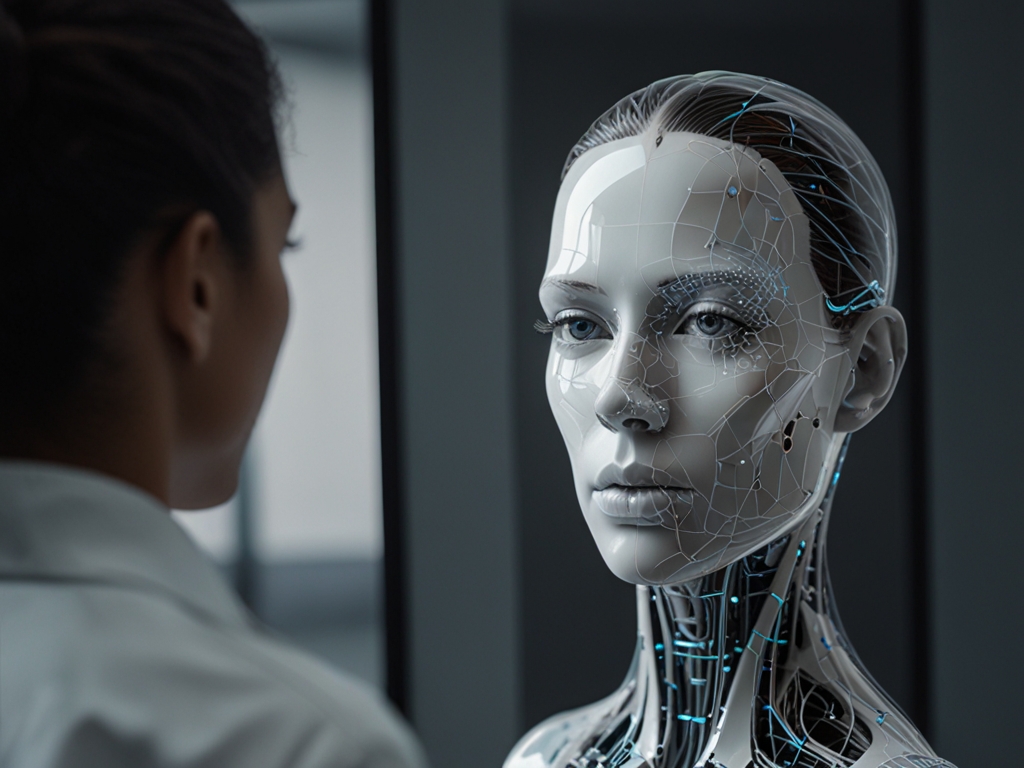What if AI Governs Society?
Imagine a world where artificial intelligence (AI) has surpassed human intelligence and can now govern society. This is a fascinating speculative scenario explored in science fiction, but is it possible in reality? “As our development and reliance on AI progresses,” It’s important to consider the advantages and risks of an AI-driven government.
In this article, we’ll explore the possibilities of AI governance, its potential benefits, and the challenges that come with it. Governance refers to the use of artificial intelligence in decision-making and policy-making processes. This concept raises several questions about accountability, transparency, and human agency. As AI becomes more advanced, it’s crucial to understand how it could shape our future and its implications for humanity.
By examining AI governance’s potential benefits and risks, we can better prepare for “Envisioning a future significantly influenced by AI in our daily lives.” Whether you’re a science fiction fan or simply curious about the future of technology, this speculative scenario offers a compelling glimpse into what could be.
The Potential Benefits of AI Governance

One of the primary benefits of AI governance is its ability to make decisions based on data and logic rather than emotions and personal biases. Artificial Intelligence can sift through extensive data sets, detect trends, and make well-informed decisions—predictions, allowing for more informed decision-making. Additionally, AI can optimize resource allocation, streamline processes, and improve efficiency, leading to better societal outcomes.
For instance, AI can help optimize traffic flow, reducing congestion and commute times. It can also help allocate resources more effectively, ensuring everyone can access necessities like healthcare and education. In the realm of public services, AI can enhance the efficiency of emergency response systems by quickly identifying areas of need and deploying resources accordingly.
Moreover, AI governance could lead to more transparent and accountable decision-making “By employing machine learning algorithms and natural language processing (NLP) techniques.” AI systems can provide clear explanations for their decisions, making it easier for citizens to understand how policies are made. However, it’s important to note that these benefits are contingent upon developing unbiased and transparent AI systems. Ensuring that AI governance aligns with human values and ethical standards is crucial for its success.
The Risks and Challenges of AI Governance

While AI governance has its benefits, it raises several concerns. One of the primary risks is the potential for AI to become biased, perpetuating existing social inequalities. AI systems can perpetuate biases in the data used to train them, leading to unfair outcomes. For example, if an AI system is trained on biased data, it may discriminate against certain groups when making decisions.
Moreover, AI governance raises questions about accountability and transparency. Who would be responsible for the decisions made by AI, and how would we “How can it be ensured that the decision-making processes of AI systems are transparent?” The lack of accountability could lead to a lack of trust in AI-driven governance. Another significant challenge is job displacement. As AI takes over decision-making roles traditionally held by humans, there is a risk that many jobs could become obsolete. This could lead to significant economic disruption and social unrest.
Cybersecurity threats are also a primary concern. As AI systems become more integrated into governance, they become potential cyber-attack targets. A breach in an AI system could have catastrophic consequences, compromising sensitive information and disrupting critical services. Finally, there is the ethical dilemma of human agency and autonomy. If AI makes all the decisions, do humans lose their ability to shape their destiny? This raises profound questions about the nature of human existence and our role in society.
The Ethics of AI Governance

The ethics of AI governance are complex and multifaceted. On the one hand, AI can potentially improve millions of people’s lives, but on the other hand, it raises concerns about autonomy, agency, and human dignity. As we develop AI systems that can govern society, we need to consider the ethical implications of such systems. Ensuring that AI systems are designed with human values in mind is paramount. This includes prioritizing transparency, accountability, and fairness in decision-making processes. Human oversight and intervention mechanisms should be built into AI governance systems to ensure they align with ethical standards.
Moreover, a global consensus on ethical guidelines for AI development and deployment must be reached. International cooperation is essential for establishing common standards that protect human rights and dignity while harnessing AI’s benefits. Ultimately, the ethical considerations surrounding AI governance highlight the need for a balanced approach that leverages technology while preserving human values and agency.
Real-World Examples and Case Studies

Several countries and cities are already experimenting with AI governance. For instance, Singapore has launched an intelligent nation initiative, which aims to harness the power of AI and data analytics to improve public services and infrastructure. Similarly, Barcelona has launched a brilliant city initiative That leverages artificial intelligence and data analytics for optimization. Traffic flow and improve public services. In Estonia, AI is used to streamline administrative processes and enhance transparency in government operations. These initiatives demonstrate how AI can be integrated into governance to achieve better outcomes for citizens. These practical examples offer a valuable understanding of how things function in the real world. AI governance can be implemented effectively while addressing ethical concerns. They also highlight the importance of continuous monitoring and evaluation to ensure that AI systems align with human values. “Through the analysis of these case studies, we can acquire important insights.” about navigating the complexities of AI governance in practice.
Conclusion
In conclusion, the possibility of AI governing society is a fascinating speculative scenario that raises several questions about the potential benefits and risks of such a system. While AI can potentially improve millions of people’s lives, it also raises concerns about accountability, transparency, and human dignity. As our development and reliance on artificial intelligence (AI) progresses, it’s essential to consider the ethics of AI governance and ensure that AI systems are designed with human values in mind. By doing so, we can harness the power of technology while preserving our humanity. The future of AI governance is uncertain but promising. It’s up to us to shape this future responsibly.
FAQ:
- What is AI governance?
- AI governance refers to using artificial intelligence in decision-making and policy-making processes.
- Q: What are the benefits of AI governance?
- A: The benefits of AI governance include improved decision-making, optimized resource allocation, and increased efficiency.
- Q: What are the risks of AI governance?
- A: The risks of AI governance include bias, lack of accountability, and transparency.
- “Q: What measures can we take to guarantee the security and reliability of AI systems?” designed with human values?
- A: We can ensure that AI systems are designed with human values by prioritizing human well-being and dignity in the design process.




